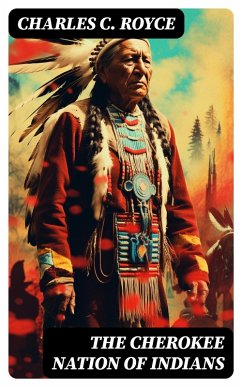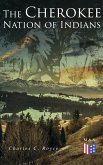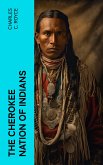In "The Cherokee Nation of Indians," Charles C. Royce provides a meticulously researched and richly detailed account of the history, culture, and governance of the Cherokee people. This work stands out not only for its extensive historical insights but also for its illustrative narrative style, which blends scholarly rigor with engaging prose. Royce contextualizes the evolution of the Cherokee Nation against the backdrop of broader American history, including the impact of colonialism and the Indian Removal Act. Through this lens, he captures the complexity of Cherokee identity, highlighting both resilience and adaptation within changing political landscapes. Charles C. Royce was an eminent scholar and historian whose interests encompassed Native American history and ethnology. His extensive fieldwork and personal interactions with Native communities deeply informed his writing. Royce's commitment to presenting accurate and respectful representations of Indigenous cultures stemmed from his advocacy for the rights and recognition of Native peoples during a time when their histories were often overlooked or misrepresented by mainstream narratives. This book is essential for anyone interested in Native American studies, American history, or the dynamics of cultural preservation. Royce's engaging yet scholarly approach invites readers to appreciate the richness of the Cherokee Nation's history while fostering a deeper understanding of the ongoing narratives surrounding Indigenous communities in America.
Dieser Download kann aus rechtlichen Gründen nur mit Rechnungsadresse in A, B, BG, CY, CZ, D, DK, EW, E, FIN, F, GR, H, IRL, I, LT, L, LR, M, NL, PL, P, R, S, SLO, SK ausgeliefert werden.









